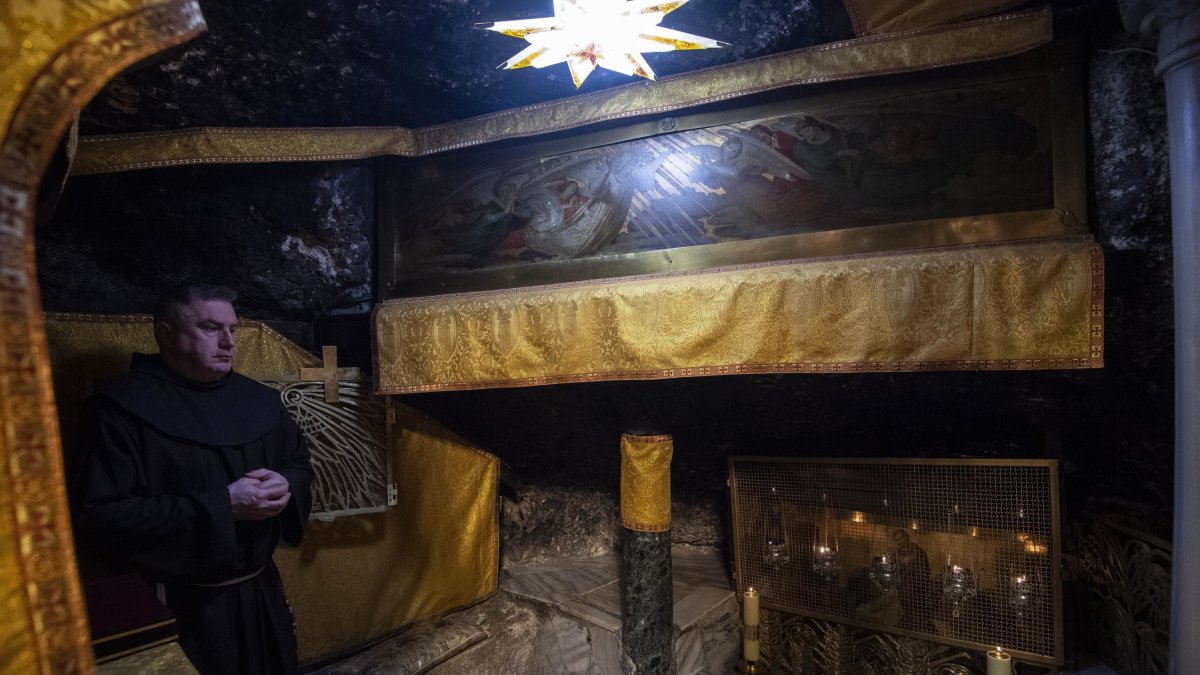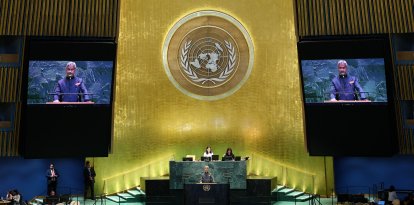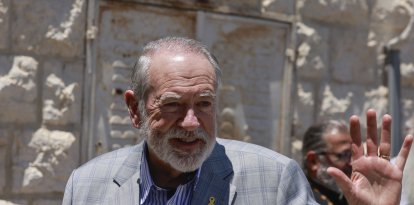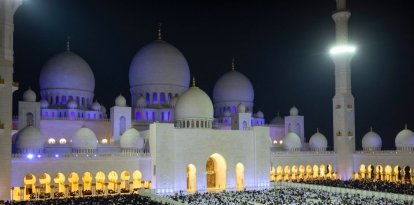The Death of Christianity in Bethlehem
Christians living under the Palestinian Authority (PA) are experiencing continual ill-treatment that Muslims do not.

The place of Jesus' birth inside the Church of the Nativity in Bethlehem / Cordon Press.
After noting that there "has been a marked uptick in religiously motivated attacks by Palestinian Muslims on Christians in Bethlehem," a report from November 21 offers these examples:
The persecution of Palestinian Christians is, in fact, a longstanding problem, according to Rabbi Pesach Wolicki, Director of the Center for Jewish-Christian Understanding and Cooperation:
According to Kamal Tarazi, a Christian man who fled from the Hamas-controlled Gaza strip in 2007, "The moment they [Hamas] took control [of Gaza], they started persecuting us, ruining our churches and forcing Christians to convert to Islam." Before fleeing, Tarazi tried to resist the Islamist takeover, and called on Muslims and Christians to unite against Hamas. As a result, "I was jailed several times," he said. "Do you know what a Hamas prison is? It is pure torture."
Numbers confirm that Christians living under the Palestinian Authority (PA) are experiencing continual ill-treatment that Muslims do not. In 1947, Christians made up 85% of the population of Bethlehem, an ancient Christian stronghold. By 2016, Christians had declined to only 16% of the population.
"In a society where Arab Christians have no voice and no protection it is no surprise that they are leaving," noted Justus Reid Weiner, a lawyer acquainted with the region.
Incidents of persecution are never reported by international media. Speaking on condition of anonymity, a Christian Arab resident of Bethlehem emphasized that all of the most recent instances listed above were underreported even within Israel itself, before adding:
Why is the persecution of Christians in Bethlehem and other areas controlled by the Palestinian Authority so unreported or under-reported? Certainly it is not because they experience less persecution than their coreligionists throughout the Muslim world, where the bulk of the world's persecution of Christians occurs.
This Christmas, it is important to remember that, due to ongoing but silenced persecution, Christianity is on the verge of disappearing in the place of its birth –Bethlehem, the scene of the Nativity. It is a silence that gives the Christmas song "Silent Night" an ominous meaning. "The persecution," the most recent report asserts, "is threatening the existence of the oldest Christian community in the world."
"The attacks by Muslims on Christians are often ignored by the international community and media, who seem to speak out only when they can find a way to blame Israel," wrote the Muslim journalist Khaled Abu Toameh.
Open Doors, a human rights organization that follows the persecution of Christians, reports that Palestinian Christians suffer from a "high" level of persecution:
The unique situation of Palestinian Christians –living in a politically contested arena where "public image" and therefore opinion is everything– also explains the lack of exposure. A report by Dr. Edy Cohen documents more instances of persecution of Christians. All occurred back-to-back, just before the report's publication, and none of which were reported by so-called "mainstream media":
These attacks, which occurred over the course of three weeks, fit the same pattern of abuse that Christians in other Muslim majority regions habitually experience. While the desecration and plundering of churches is prevalent, so too are Muslim mob uprisings against Christian minorities –who tend to be treated as dhimmis, or second-class citizens under Islamic governance who supposedly should be grateful to receive any toleration at all. If and when they dare speak up for their rights, as occurred on April 25, "[T]he rioters in [the village of] Jifna, called on the [Christian] residents to pay jizya –a head tax that was levied throughout history on non-Muslim minorities under Islamic rule. The most recent victims of the jizya were the Christian communities of Iraq and Syria under ISIS rule."
Worse, as often happens when Christian minorities are attacked in Muslim majority nations, "Despite the [Christian] residents' cries for help [in Jifna] the PA police did not intervene during the hours of mayhem. They have not arrested any suspects." Similarly, in the two church attacks, "no suspects were arrested".
While Palestinian Christians suffer from the same patterns of persecution as their coreligionists in other Muslim nations, including church attacks, kidnappings and forced conversion, the persecution of Palestinian Christians has "received no coverage in the Palestinian media. In fact," Cohen continues, "a full gag order was imposed in many cases":
The bread and butter of the PA and its supporters, particularly in the media, is to portray Palestinians in general as victims of unjust aggression and discrimination from Israel. This narrative would be jeopardized if the international community learned that it is Palestinian Muslims who are persecuting their fellow Palestinian Christians –solely on account of religion. It might be hard to muster sympathy for a professedly oppressed people when one realizes that they themselves are doing the oppressing of the minorities in their midst– and for no other reason than religious bigotry.
Because they are so sensitive to this potential difficulty, "PA officials exert pressure on local Christian[s] to not report such incidents, which threaten to unmask the Palestinian Authority as yet another Middle East regime beholden to a radical Islamic ideology," Cohen concludes.
Certain Palestinian Christians are also complicit. Mitri Rehab, a Palestinian academic and Lutheran clergyman living in Bethlehem, insists in his recent book, The Politics of Persecution, that whatever persecution Christians may experience in the Middle East has nothing to do with Islam and everything to do with Western or Israeli actions. In his attempt to lay blame on everything else, he even offers a section in his book on "climate change [which] will take its toll on the Christian community."
Finally, the Palestinian Authority does not merely suppress news of Christian persecution; it actively advertises a false picture. Despite the rapidly dwindling number of Christians in Bethlehem, "The fact that the PA continues to make sure that there is a Christian mayor in Bethlehem is only window dressing," according to Rabbi Wolicki.
This Christmas, it is important to remember that, due to ongoing but silenced persecution, Christianity is on the verge of disappearing in the place of its birth –Bethlehem, the scene of the Nativity. It is a silence that gives the Christmas song "Silent Night" an ominous meaning. "The persecution," the most recent report asserts, "is threatening the existence of the oldest Christian community in the world."

























